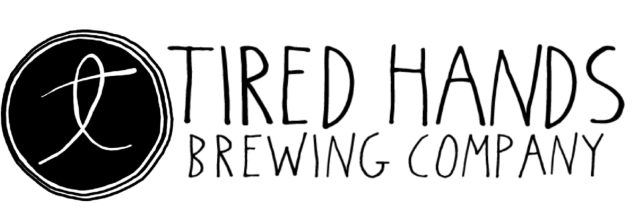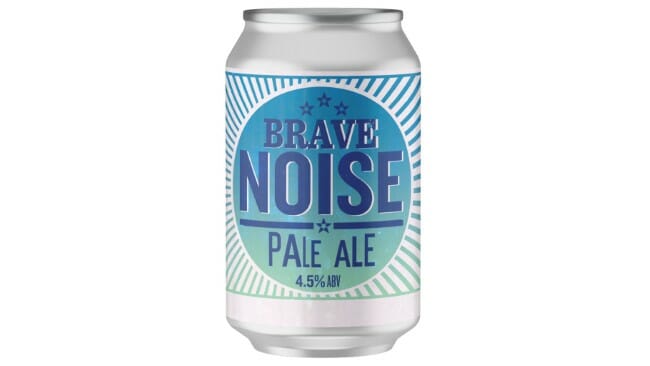If We Look Away, The Beer World’s Sexism Will Always Return to the Status Quo
Photos via Unsplash, Josh Olalde Drink Features craft beer
Just over a year ago, the world of craft beer was reeling from the latest iteration of its annual game of “Wait, sexism in this industry is still rampant?” Following an impromptu airing of grievances on Instagram (@ratmagnet), wherein professional brewer Brienne Allan (Notch Brewing) had shared some of the sexist and misogynistic experiences she’d encountered in the course of trying to be taken as seriously as the average male brewer in this industry, she opened up the floor for others in the industry to share their stories. Little did Allan know that the response would immediately surpass any possible expectations, going from a trickle to a deluge of nightmarish stories and accusations, many of them against some of the beer industry’s most hyped brewing companies and male public figures. It was a watershed moment for U.S. craft breweries, an eye-opening account of stories that are far too often hidden and suppressed, and it rocked the culture of the industry to its core.
… or at least, that’s the official line from most of the breweries involved, all of whom would very much prefer if none of us ever discussed these issues again. The truth of the matter is that the improvement of this industry is always slow, arduous and piecemeal, as every drop of progress is typically resisted and fought tooth and nail from behind the scenes, often by the very men accused of fostering toxic cultures. The standard playbook for such situations has become to first genuflect and indirectly fall upon one’s sword (without admitting any legal liability, of course), while saying the most prominently accused male will be “stepping down” or “taking time away” to do some personal research or soul searching. This leaves that male figure able to dip out of the public eye and avoid direct criticism for however long is deemed necessary before they quietly return, with seemingly nothing else about the company having changed.
Want to see that playbook in action? Look no further than Pennsylvania’s influential Tired Hands Brewing Co., where founder Jean Broillet IV apparently returned to daily working operations several months ago after the company initially said he was “stepping down” after numerous accusations about personal misconduct and a toxic workplace culture.According to current, anonymous employees at Tired Hands, none of the promised training, programs or cultural improvements that were promised when Broillet “stepped down” a year ago have been implemented. Instead, he’s simply stepped back into the status quo, and the company seems confident that the moment of judgement has passed—they’re now free to largely act as if it never happened and ignore whatever undercurrent of discomfort exists because of Broillet’s presence.
 A groundbreaking, influential brewery, now mired by its association with Jean Broillet.
A groundbreaking, influential brewery, now mired by its association with Jean Broillet.
This may be the single most difficult and nefarious aspect to fight of the beer industry’s sexism, because those of us observing the industry have understood how this all works for a long time. In fact, I wrote exactly as much in describing the industry’s sexist reckoning last year, saying that these companies only grow more resistant to change over time. As I wrote last May:
If there’s one thing we shouldn’t claim to be, it’s “surprised.” These kinds of stories have effectively become a cycle at this point, ebbing and resurging annually throughout the #MeToo era, and every time things go pretty much the same way. Outrage flares up around an inciting event, inspiring brave women and others to share their stories. The industry acts horrified and naïve about the scope of the problem, with luminaries saying “we need to do better.” A few new diversity promoting positions are created. Occasionally, a few scapegoats are identified and successfully removed. And then slowly, the white-hot anger and drive to hold breweries accountable peters out, as the average beer drinker is content to reason that perhaps things have now changed. Maybe things are better now! Maybe they’ll be able to simply enjoy their beer—provided they can find a drinkable, non-pastry beer—and feel confident that their reverie won’t be broken by these feelings of guilt once again.
But of course, that’s not how these things work. The roots of sexism and racism within the beer industry remain as insidious and widespread as ever. Like an untreated illness, they fester and grow. Worse still, they actually become more resistant to change, as the average beer drinker attempts to reason along the lines of “didn’t we already address this?” The desire for these issues to be a “thing of the past” is extremely strong, because it absolves us from having to continue thinking about them on a daily basis. But there’s no issue in beer that is more a thing of the moment.
The return of Jean Broillet to Tired Hands is exactly the sort of situation I was fearing and anticipating at the time—someone who dipped away from their company for a period, but knew they would almost certainly be able to return at a later date without having even attempted to fix anything. As described by anonymous employees to Kate Bernot of Good Beer Hunting (who extensively covered the situation a year ago as well), Tired Hands workers are characterized as frustrated and fearful, both of retribution from Broillet and the negative attention his presence is likely to draw. They were told that training on workplace harassment and reporting was incoming, when Broillet first “stepped away,” but that training “has been delayed at least twice and has not yet taken place,” according to Bernot. Plans to create “an internal diversity, equity and inclusion program”? Those also haven’t come to pass. It’s almost as if companies only mention these initiatives for as long as people are actively clamoring for them, and then quietly drop the plans when negative attention has moved elsewhere.
Indeed, Tired Hands now seems to be attempting to actively retcon the situation with Broillet—who was described as “intimidating and hostile” to employees, especially women, in stories shared on Allan’s Instagram feed—by acting as if the founder’s exit was always meant to be temporary. The original Tired Hands post from last May announcing that Broillet was stepping down has since been deleted. Meanwhile, a PR firm representing Tired Hands has issued statements in Broillet’s defense, justifying his return.
“He stepped away to do some soul-searching,” said company spokesman Greg Matusky of PR firm Gregory FCA. “He owns the company, he’s the visionary behind it. He’s back.” In another statement, Matusky stresses that “Jean has not been found guilty of anything.”
It would seem, though, that Broillet hasn’t been content only to return quietly to a more active role in his company. Instead, the company has also moved to confront Brienne Allan, whose Instagram account was the source of his public shaming. According to Good Beer Hunting, Allan was contacted by the Tired Hands Instagram account in recent weeks, with demands to remove any of the posts that referenced Broillet or the company. These posts, shared via the Philadelphia Inquirer, don’t hold back in their implication of legal consequences should Allan not comply. Ultimately, she did remove the posts referencing Tired Hands.
That, however, didn’t stop the Tired Hands Instagram account from then publicly attacking Allan in two now-deleted Instagram stories. Those stories read as follows: “JUST PLEASE STOP WITH YOUR HARASSMENT @ratmagnet” and “PLEASE STOP TRYING TO HURT GOOD PEOPLE @ratmagnet.” One has to wonder who in the company has control of said Instagram account, and how they could possibly think that publicly chastising Brienne Allan—a woman who has received industry wide plaudits for trying to make a positive impact in the fight against sexism, racism and harassment—could be a good idea.
 The movement that began on Allan’s Instagram account eventually led to the collaboration beer Brave Noise, brewed by hundreds of U.S. breweries to advocate for inclusivity, responsibility and adherence to brewery codes of conduct.
The movement that began on Allan’s Instagram account eventually led to the collaboration beer Brave Noise, brewed by hundreds of U.S. breweries to advocate for inclusivity, responsibility and adherence to brewery codes of conduct.
All in all, the situation paints a picture of a tumultuous and stressful existence for regular employees at Tired Hands, a company that employees told Good Beer Hunting has not even had a true human resources head since February, when the previous employee in that position resigned. Which is to say, even if employees are uncomfortable with Broillet’s return, one has to wonder where they would possibly report that unease, even if they somehow didn’t fear being punished for broaching the subject.
This is, of course, just one case study in a larger industry problem that never seems to abate. It’s indicative of the way our society enshrines powerful men as untouchable—even when they suffer public shaming or find themselves accused of wrongdoing, they can simply shrug and recede into the shadows for however long it takes attention to move elsewhere. The rest of the industry knows how it works as well—they may shun a company or a prominent industry figure briefly, but before you know it that same guy has been invited back to prominent beer festivals like nothing ever happened.
This method works because of our desire to assume that things will improve, rooted in our additional desire to not have to personally invest our own time and energy in making improvements or examining our own behavior. And as long as we’re willing to look away, to turn a blind eye to men behaving abhorrently in the beer industry—men who haven’t acknowledged their failings or even made a token attempt at improvement—then change is not only unlikely, but practically impossible.
So what can we do? Well, we need to have long memories, for one. We need to follow up with these companies when they promise to institute new programs and training, to ensure these things have actually taken place years later. We need to continue to demand explanation and consequences from powerful men who “step away,” only to reappear when the heat seems to be off. And perhaps most importantly, we men need to be ready to step in ourselves to defend and assist women when we see sexism and harassment unfolding in this industry, or when we’re told it’s occuring. As hard as it may be to imagine, the beer world’s problem with sexism isn’t a labor that women should be tasked with rooting out and fixing. This one is on us to confront.
Jim Vorel is a Paste staff writer and resident beer and liquor geek. You can follow him on Twitter for more drink writing.